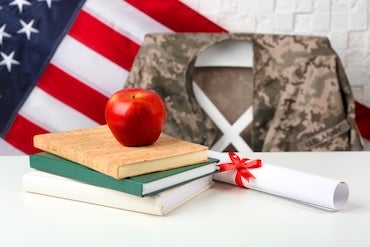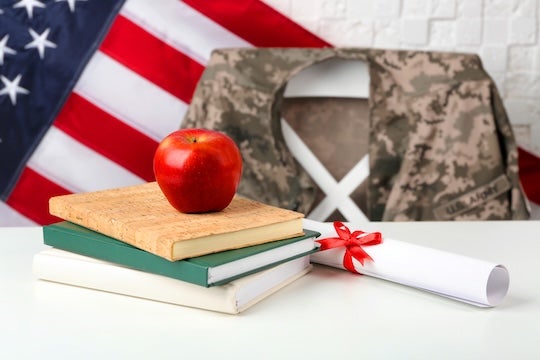A new Rice University-led study for the National Academies of Sciences, Engineering and Medicine reveals how military education can evolve to meet the demands of an increasingly unpredictable world.

Margaret Beier, professor and department chair in psychological sciences at Rice, led the study, and Eduardo Salas, the Allyn R. and Gladys M. Cline Professor of Psychology, served on a National Academies consensus committee that examined how military personnel learn, develop skills and prepare for missions while juggling unique challenges such as high-stress environments and frequent career transitions. The report outlines practical steps to make military training more effective, flexible and aligned with both military and civilian career goals.
“The U.S. military is more than just the backbone of national security; it’s one of the nation’s largest hubs for education and training,” Beier said. “With millions of active-duty personnel, reservists and civilian employees, the Department of Defense (DoD) is tasked with ensuring its workforce is prepared to successfully carry out land, sea, air, cyber and space missions.”
Military training goes far beyond tactical drills. Service members must master technical skills, leadership, teamwork and advanced technologies. They also face unique hurdles such as handling rigid hierarchies and high-pressure situations.
The report identifies several areas where the military can strengthen its approach to education and skills development. The researchers said training programs should mirror individual goals as much as possible to encourage motivation and engagement. This includes using tools to match recruits with roles that fit their interests and rewarding self-driven learning. In addition, many service members eventually move into civilian careers, and the report suggests integrating civilian certifications and education into military programs to make this transition smoother.
And while student needs must be addressed, instructors are also key to successful training. However, they often face challenges like limited preparation time or short teaching assignments. The report recommends extending instructor tenures and providing better training in educational techniques.
Finally, the researchers noted that the stressful environments in which military personnel often find themselves must be addressed in training. While part of daily life for members of the military, these environments can impact learning differently depending on the situation. The researchers said training programs should teach service members how to view stress as a challenge to overcome rather than a threat.
The report also highlights the impact of technology on education from simulations to personalized learning opportunities using artificial intelligence. The report suggests that the military invest in digital learning connecting the different branches of the DoD and ensure training programs are up to date.
“The stakes for military learning are high,” Beier said. “So much of what they do depends on how well they are trained. We hope these recommendations can make sure the military is prepared for whatever the future holds.”
The full report, “Adult Learning in the Military Context,” is available at https://www.nationalacademies.org/our-work/adult-learning-in-the-military-context.

